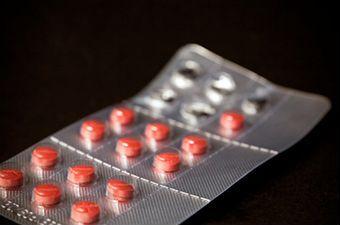Taking the pill is directly linked to Breast Cancer
Women who have ever taken the pill are 26% more likely to develop breast cancer than those who have never taken it.
 43% of women aged 25-29 take the pill
43% of women aged 25-29 take the pill
These findings were amongst several presented at the European Cancer Conference in Barcelona recently by Dr Marethe Kumle. Dr Kumle is an epidemiologist from the Institute of Community Medicine in Tromso, Norway. Her research, one of the largest studies ever carried out, was undertaken with over 100,000 women of all ages.
The findings are especially worrying given the heavy usage of the pill as a contraceptive. 43% of women aged 25-29 take the pill, this figure declines to 32% in the age band 30-34 and for over 40’s the figure is 10%.
Alarmingly, the long-term effects of taking the pill show even greater increases in risk.
 Women taking the pill in their 30’s to 40’s were 58% more likely to develop the disease, whilst those who continue to take the pill into their mid 40’s and beyond see the risk doubling to 144%. No research was conducted on the use of oestrogen based HRT but users should also be concerned at these findings.
Women taking the pill in their 30’s to 40’s were 58% more likely to develop the disease, whilst those who continue to take the pill into their mid 40’s and beyond see the risk doubling to 144%. No research was conducted on the use of oestrogen based HRT but users should also be concerned at these findings.
The link between oestrogen and cancer has been chronicled several times before. As long ago as 1985 the World Health Organisation linked increased pill consumption to invasive cancers. Oestrogen is know to bind to receptors on the surface of cells and can induce change and damage to the DNA within.
Cells are unspecific about what sort of oestrogen binds to them and photoestrogens from plants, for example from Soya, will also bind to these receptors thus protecting the cell without a negative effect on the DNA.
In Jane Plant’s book, read the review, part of her argument is that breast cancers can be successfully avoided by cutting all dairy foods out of the diet whilst simultaneously increasing Soya intake. Soya isoflavones, for example, genistein are prevalent is the non-dairy consuming countries of the world like China, where women can have 1000 times the genistein content in their blood streams than their dairy eating western sisters.